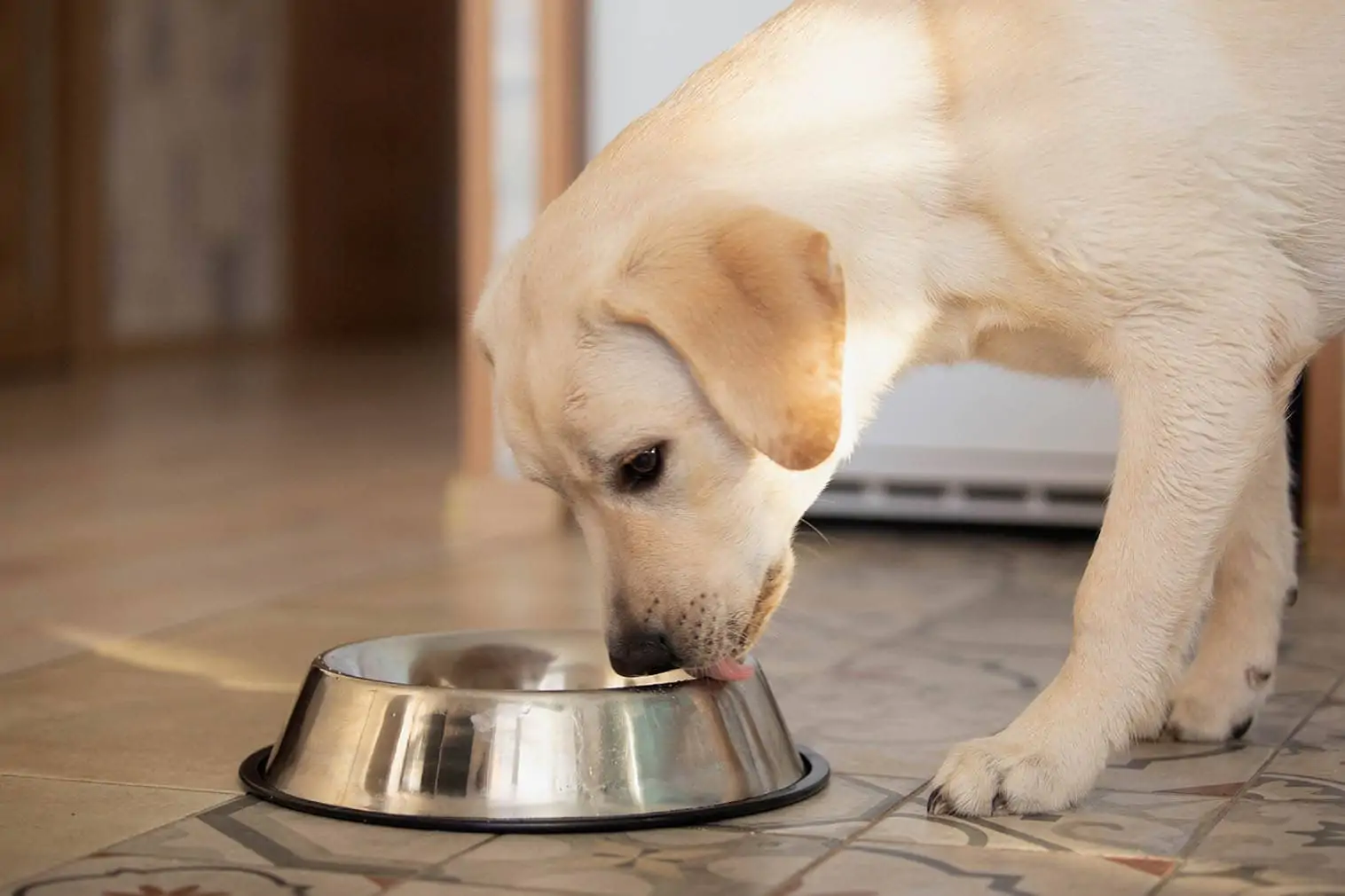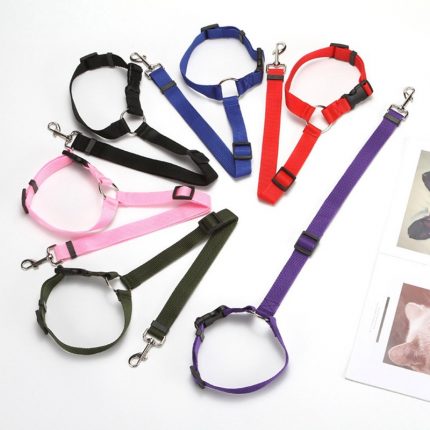Why Does My Dog Lick Metal: Exploring the Curious Behavior
Have you ever caught your furry friend enthusiastically licking metal objects around your home? From doorknobs and metal furniture to coins and keys, it may seem like an odd behavior for your canine companion. While dogs are known for their inquisitive nature, their penchant for licking metal can leave many pet owners puzzled. In this article, we delve into the intriguing world of why dogs engage in this peculiar behavior.
At first glance, it may appear that dogs lick metal simply because they enjoy the taste or texture. After all, dogs explore their surroundings with their mouths, and metal objects can provide a unique sensory experience. However, there might be more to this behavior than meets the eye.
One possible explanation is that dogs lick metal objects as a means of seeking attention or alleviating boredom. Dogs are social animals and thrive on human interaction. When they engage in behaviors that are out of the ordinary, such as licking metal, it can be their way of communicating their need for mental stimulation or companionship. It may serve as a form of self-soothing or a way to cope with feelings of loneliness or anxiety.

Another theory suggests that dogs may lick metal due to a deficiency in their diet. Certain minerals, such as iron or zinc, are found in metal objects and are essential for a dog’s overall health. If a dog’s diet lacks these vital nutrients, they may instinctively seek them out by licking metal surfaces. This behavior could be their way of supplementing their dietary needs, although it is important to ensure that their nutritional requirements are met through a well-balanced diet.
Additionally, some experts believe that dogs may lick metal objects as a result of a compulsive disorder or underlying medical condition. Just like humans, dogs can develop repetitive behaviors or compulsions that provide them with a sense of comfort or relief. If your dog’s metal licking behavior becomes excessive or interferes with their daily life, it is advisable to consult with a veterinarian to rule out any underlying health issues or behavioral concerns.
Understanding why dogs lick metal is essential for responsible pet ownership. While this behavior may seem harmless, it is crucial to monitor your dog’s actions and ensure their well-being. In the following sections, we will explore the main reasons behind this behavior in more detail and provide practical recommendations to address it effectively. So, let’s dive deeper into the intriguing world of why our canine companions have a penchant for licking metal objects.
The Fascinating Reasons Behind Your Dog’s Metal Licking Behavior
Curiosity and Sensory Stimulation
One possible reason why dogs lick metal objects is their innate curiosity and the desire for sensory stimulation. Dogs explore the world around them through their senses, and the taste and texture of metal can pique their interest. The coolness and smoothness of metal surfaces may provide a unique sensation that captures their attention. However, it is important to ensure that the objects they lick are safe and free from harmful substances or sharp edges.
Attention-Seeking Behavior
Dogs are social animals and thrive on human companionship. Licking metal objects may be a way for your dog to seek attention from you or other household members. If your dog feels neglected or bored, engaging in unusual behaviors like licking metal can be a way to gain your attention. It is essential to provide your furry friend with plenty of mental and physical stimulation to prevent boredom and address their need for interaction.
Nutritional Deficiencies
Another possible explanation for dogs licking metal is a deficiency in their diet. Metal objects, such as coins or keys, contain trace amounts of minerals like iron or zinc. If your dog’s diet lacks these essential nutrients, they may instinctively seek them out by licking metal surfaces. While occasional licking may not cause harm, it is crucial to ensure that your dog’s nutritional needs are met through a well-balanced diet. Consult with your veterinarian to determine if any dietary adjustments or supplements are necessary.
Compulsive Behavior or Underlying Medical Issues
In some cases, dogs may develop compulsive behaviors, including licking metal objects. Compulsions can be a result of anxiety, stress, or underlying medical conditions. If your dog excessively licks metal or displays other repetitive behaviors, it is advisable to consult with a veterinarian. They can evaluate your dog’s overall health and behavior to rule out any underlying medical issues or provide guidance on managing compulsive behaviors.
Conclusions
In conclusion, understanding the peculiar behavior of your dog, such as “Why Does My Dog Lick Metal,” can be crucial for their health and well-being. For more insights and tips on this behavior, visit geepets.com, where you’ll find a comprehensive guide addressing the reasons behind various canine behaviors, including nutritional deficiencies or compulsive disorders that might lead to such actions.
Additionally, for a broader perspective on dog health and to ensure your pet is receiving the care they need, the American Kennel Club (akc.org) offers a wealth of resources on dog health, training, and nutrition. Exploring these resources can provide you with the knowledge and tools to ensure your furry friend remains healthy and happy.

Practical Recommendations to Address Your Dog’s Metal Licking Behavior
1. Provide Sufficient Mental and Physical Stimulation
One of the key ways to address your dog’s metal licking behavior is to ensure they receive enough mental and physical stimulation. Engage in regular play sessions, provide interactive toys, and take them for daily walks or exercise. This will help alleviate boredom and provide an outlet for their energy, reducing the likelihood of engaging in unusual behaviors like licking metal objects.
2. Offer Safe and Appropriate Chew Toys
To redirect your dog’s attention away from metal objects, which might have you wondering, “Why does my dog lick metal?”, it’s essential to provide them with a variety of safe and appropriate chew toys. When you notice behaviors that lead to the question, “Why does my dog lick metal?”, it’s a clear sign your dog is searching for oral stimulation or is curious about their environment.
Opt for toys made specifically for dogs that are durable and designed to withstand chewing. This will give them a healthy outlet for their chewing instincts and help satisfy their need for oral stimulation, addressing the underlying curiosity that leads you to ask, “Why does my dog lick metal?”.
By focusing on this approach, you not only offer a solution to the immediate concern tied to the query, “Why does my dog lick metal?”, but you also enrich your dog’s environment in a positive and engaging way. Engaging their senses with toys that are safe and meant for their rigorous use can divert their attention from metal objects, effectively answering and mitigating the worry behind “Why does my dog lick metal?”.
This method ensures that their natural behaviors are directed towards activities that are beneficial for their well-being, keeping the perplexing question, “Why does my dog lick metal?”, at bay by providing healthier alternatives for their exploration and play.
3. Ensure a Well-Balanced Diet
Ensuring your home environment is safe for your dog involves addressing a peculiar behavior that may have prompted you to ask, “Why does my dog lick metal?” By removing any potentially harmful metal objects, you’re taking a significant step towards mitigating this concern.
Keep coins, keys, and other small metal items out of reach or stored securely to reduce the temptation for your dog to engage in metal licking behavior, which might have led you to wonder, “Why does my dog lick metal?” Additionally, replacing metal furniture or objects with safer alternatives, such as wooden or plastic materials, can help eliminate the curiosity behind the question, “Why does my dog lick metal?”
This proactive approach not only reduces the risk of them ingesting harmful substances or injuring themselves but also addresses the underlying query of, “Why does my dog lick metal?” By making these changes, you’re directly confronting the issue that leads many pet owners to ponder, “Why does my dog lick metal?” and taking practical steps to prevent it. Understanding and addressing the root cause of why your dog may engage in metal licking behavior is crucial, and by ensuring your home is free of accessible metal items, you’re contributing to a safer, healthier environment for your pet, diminishing the need to ask, “Why does my dog lick metal?”

5. Seek Professional Guidance
If your dog’s metal licking behavior becomes excessive, interferes with their daily life, or is accompanied by other concerning symptoms, it is important to seek professional guidance. Consult with a veterinarian or a professional animal behaviorist who can assess your dog’s behavior and health. They can provide tailored advice and strategies to address the underlying causes of the behavior and help you develop a management plan.
Remember, each dog is unique, and the reasons behind their metal licking behavior may vary. By implementing these practical recommendations and seeking professional guidance when needed, you can help your furry friend lead a happy and healthy life, free from the compulsion to lick metal objects.















